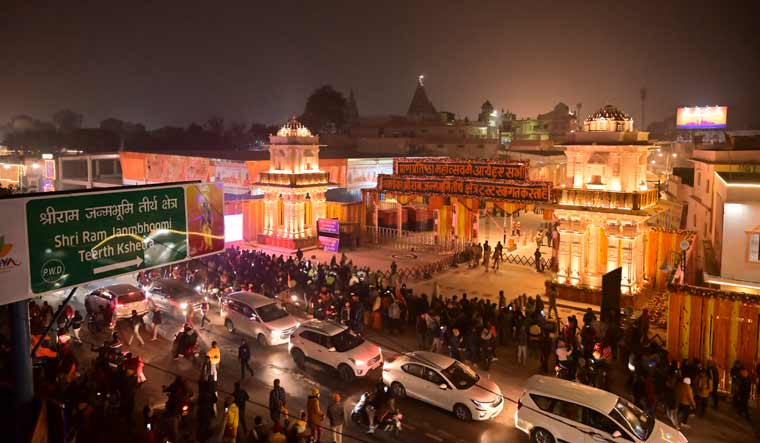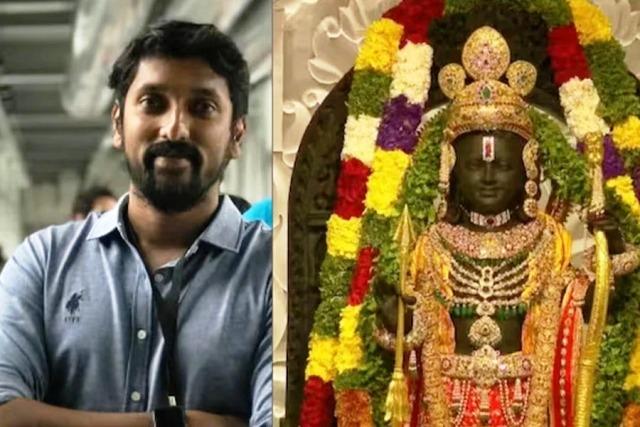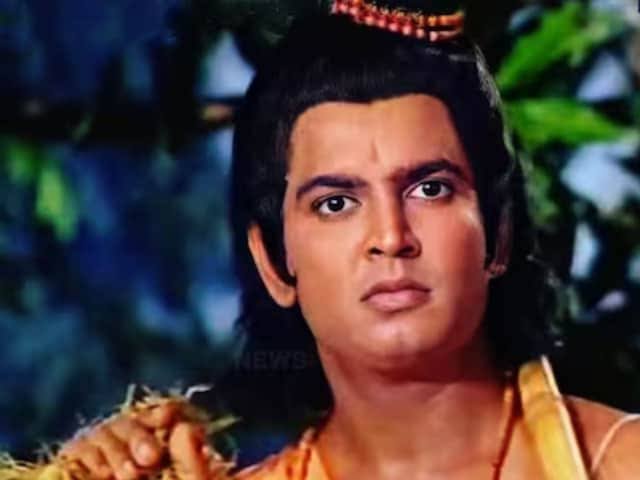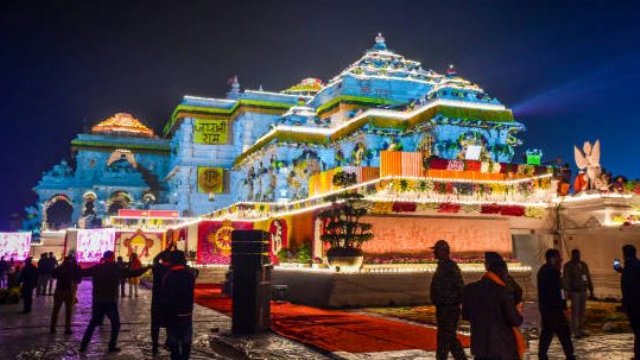Ayodhya: The inauguration of the Ayodhya Ram Mandir will take place today, with a multitude of dignitaries expected to attend. Prime Minister Narendra Modi will be present as a team of priests conducts the main rituals of ‘pran pratishtha.’ The crafted idol of the deity Ram, created by Arun Yogiraj, has been positioned in the temple’s Sanctum Sanctorum.
The “Pran Pratishtha” ceremony is scheduled to commence at 12:20 pm and is anticipated to conclude by 1 pm. Following the ceremony, the Prime Minister will deliver a speech to a gathering of over 7,000 individuals, comprising spiritual leaders and notable personalities present at the venue. As per the Shri Ram Janmabhoomi Teerth Kshetra Trust, on Sunday, the idol of Ram Lalla underwent ritualistic bathing using 114 pitchers filled with “aushadhiyukt” (water infused with medicinal properties), along with sacred water sourced from different pilgrimage sites.
Ayodhya has been placed under tight security measures in anticipation of the grand opening of the Ram Temple. Commandos from the Uttar Pradesh Anti-Terrorist Squad (ATS) have been stationed at Lata Mangeshkar Chowk in preparation for the ‘Pran Pratishtha’ ceremony scheduled for Monday. The Uttar Pradesh Police have indicated the utilization of modern, advanced technology for comprehensive security arrangements during the event.
A network of 10,000 CCTV cameras is actively monitoring the movements of both the public and undercover police personnel at the venue. Streets ranging from Dharampath and Rampath, experiencing a significant surge in devotees, to the Hanumangarhi area’s bylanes and the Asharfi Bhavan road, are under regular patrol by visible police presence.
Arrangements have been made to begin the ceremony with ‘Mangal Dhvani’ (auspicious sound) on January 22. “More than 50 enchanting musical instruments from various states will be played for almost 2 hours to produce Mangal Dhvani,” the Chief Minister’s office said in a press release.
‘Mangal Dhvani’ include Pakhawaj, flute, Dholak of Uttar Pradesh, Veena of Karnataka, Sundari of Maharashtra, Algoza of Punjab, Mardal of Odisha, Santoor of Madhya Pradesh, Pung of Manipur, Nagada and Kali of Assam, Tambura of Chhattisgarh, Pakhawaj of Bihar, Shehnai of Delhi, Ravanahatha of Rajasthan, Srikhol, Sarod of Bengal, Ghatam of Andhra Pradesh, Sitar of Jharkhand, Santar of Gujarat, Nagaswaram, Tavil, Mridang, and Hudka of Uttarakhand.







